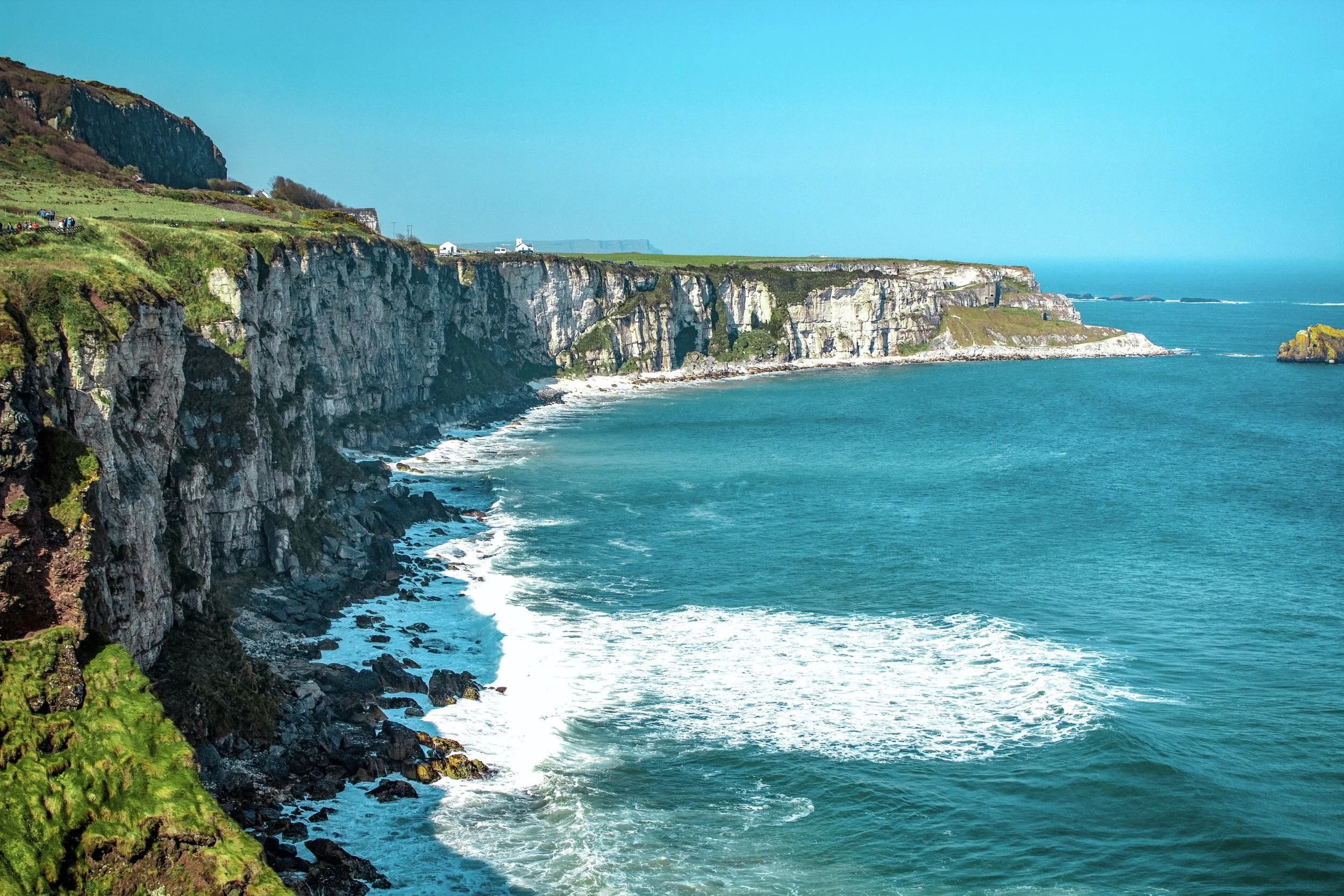caption for image
Hey {{ subscriber.first_name }},
My wife and I just returned from a two-week scouting trip. Not as in Boy or Girl Scouts, but an advance logistics trip ahead of our June World to the Wise Cultural Tour. We checked on most of our current destinations -- hotels, Covid conditions, and the general tenor of Western Europe in light of recent events -- as well as checked out a couple of possible new destinations for our group adventures.
The last several days were spent in Ireland. We had spent a very few days in and around Dublin to decompress from a tour a few years ago, so we spent most of our time exploring parts of the Emerald Isle we had never visited. As always, our time was too short, but we got a better taste of this unique two-in-one country, which is one of our main reasons for visiting.
Many Americans might not know what you're talking about if you mention the term "the Troubles". And yet this period, from the late 1960's to 1998, was one of the most tumultuous in the history of this ancient land. We were eager to hear some first-hand accounts of people from both the North and the South, as Northern Ireland and the Republic of Ireland are commonly referred to.
What we discovered was, by and large, a country that is looking forward. A country that has resolved to move beyond the wounds and divisions of the past, although some vestiges of the conflict between Catholic and Protestant, Republican and Royalist remain. For example, although residents of Belfast work together, eat out together, attend sports events and concerts together, many still go home to sectarian neighborhoods -- the same neighborhoods that saw firebombs in their streets as recently as thirty years ago. (If you haven't already, please see the movie "Belfast" for a first-hand account as remembered by a six-year-old boy.)
Whereas older adults told us about their memories of having to check regularly for bombs at work or home and passing through multiple checkpoints when traveling from any Point A to Point B, younger Irish now see the Troubles as a thing of the past that needs to stay there. The border between Northern Ireland, part of the United Kingdom, and the Republic of Ireland is so porous that if you blink, you'll miss it. Students from the North study in the South and vice versa. Do real differences still exist? Of course -- further complicated by Brexit and its ramifications, some of which have yet to be worked out.
The thing that most stands out to me when I think of Ireland is the friendliness of its people. You can be standing on a busy street corner in the heart of Dublin, looking at a map to find your bearings, and a stranger will stop and ask how he can help. (Yes, this happened to us.) We stopped and talked to more than one policeman, and each time they welcomed us to their country. The Irish have also opened their doors to thousands of migrant workers, primarily from Eastern Europe EU nations and not a few Brazilians. We found it a rare thing to be waited on by an Irish person, as so many of these foreigners work in the service industry.
So much more could be said of this friendly green land that so many of us Americans can trace our ancestry to. It is a thriving, prosperous and forward thinking place, while holding on to a somewhat less frenetic pace of life than many of us are used to. (An Italian chef told us he could never go back to what he called his chaotic home town of Naples.) Not to mention the natural beauty of the land itself and its fascinating Celtic history and language.
Is Ireland on your bucket list as it was on ours? Would you perhaps be interested if we were to include it on a tour itinerary in the future? Just leave your comment below, or if you've been there, share with the rest of us why Ireland is a special place to you.
You can see pictures of our latest travels on Facebook (David Durham) or Instagram (@davidkdurham, @worldtothewisetours).
